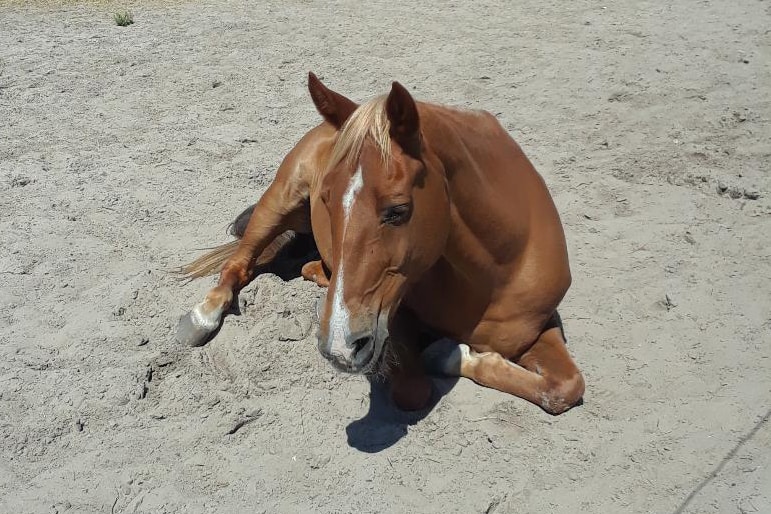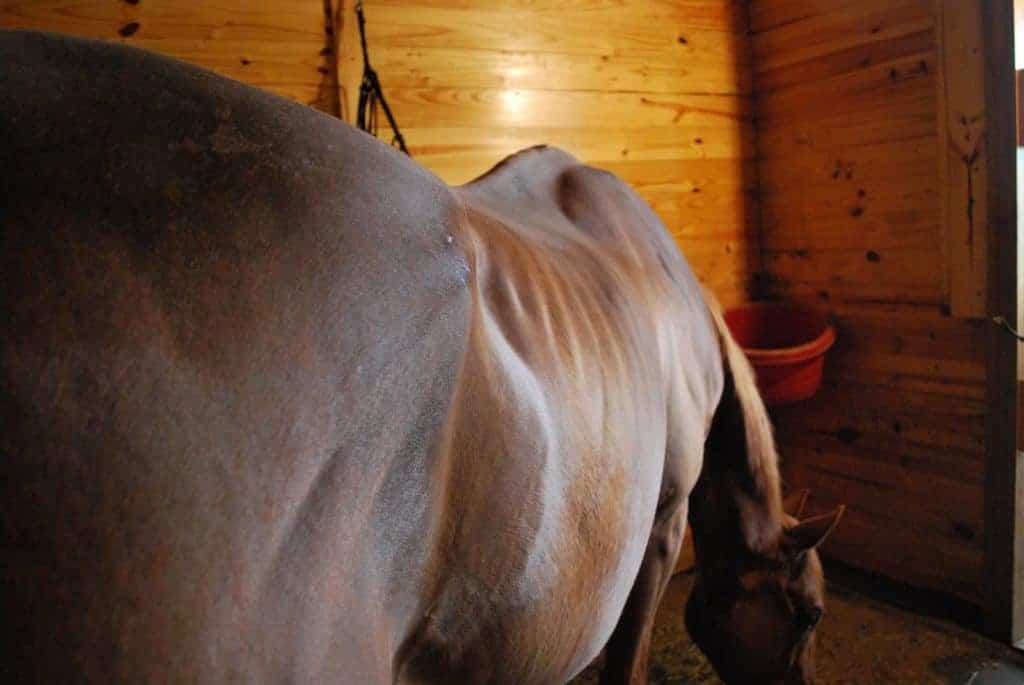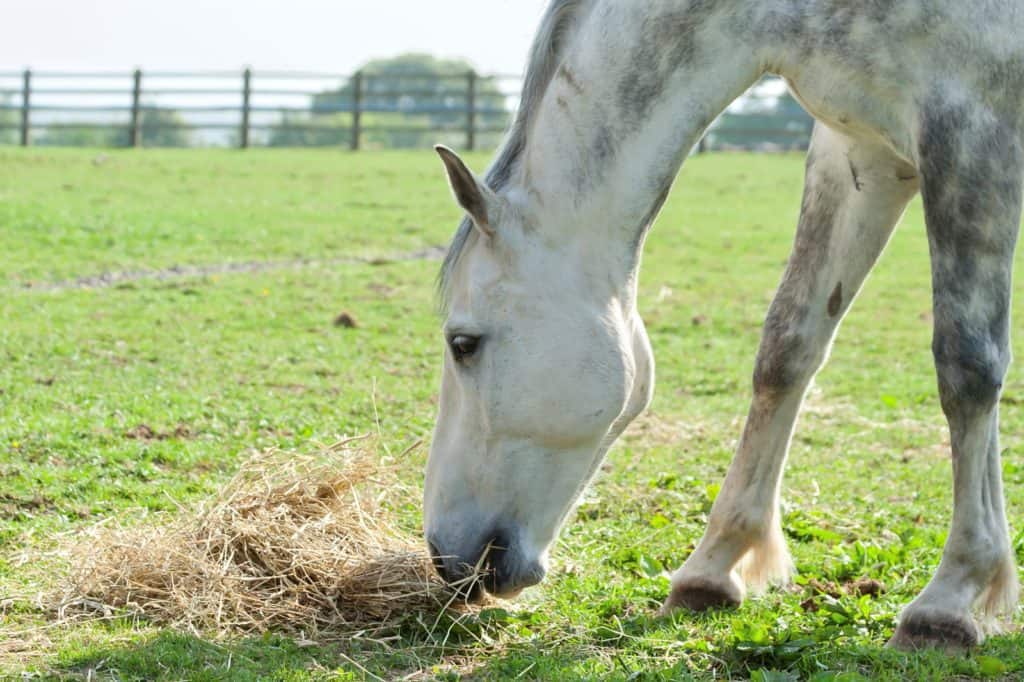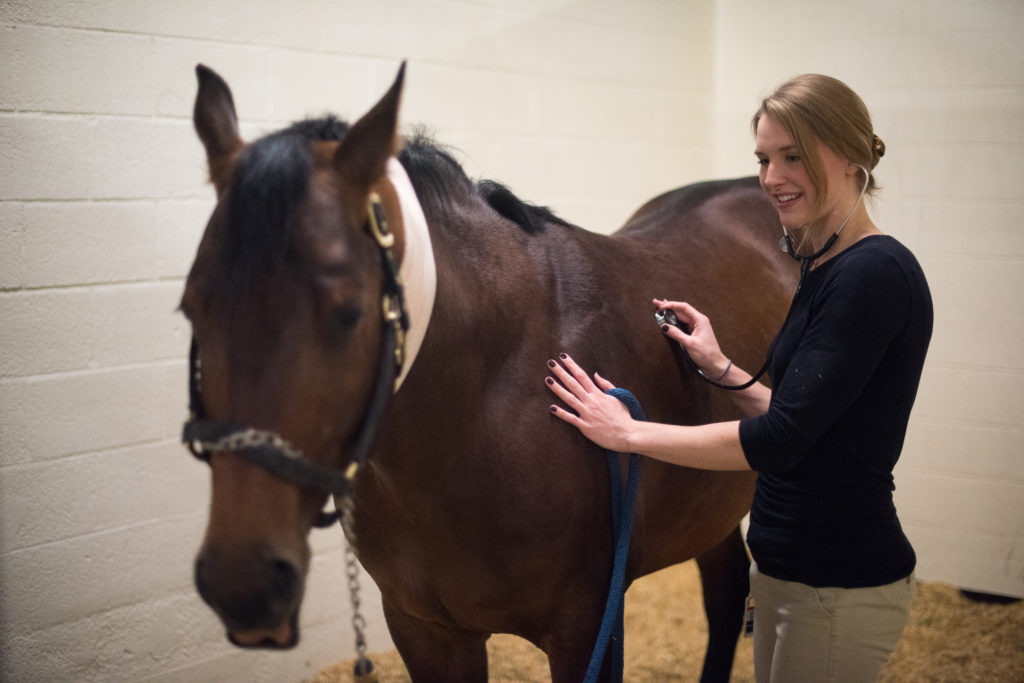
The Long Haul: Traveling Long-Distances With Horses
A U.S. Equestrian Team veterinarian who has overseen the shipping of horses to six Olympic Games shares what steps to take before, during, and after a long-distance trailer ride.

A U.S. Equestrian Team veterinarian who has overseen the shipping of horses to six Olympic Games shares what steps to take before, during, and after a long-distance trailer ride.

Read about research into increasing the time horses spend eating (a good thing) without feeding them too much (a bad thing), along with more take-homes from the 2019 Equine Science Society Symposium.

Surgeon Dr. Anthony Blikslager shares his perspective on preventing horse colic.

Researchers recently found that, despite what can be an arduous first year of transition, healthwise, owners are overwhelmingly very satisfied with their horses and most said they’d buy an OTTB again.

Journalist Pat Raia has written about horse health and welfare issues for years, but she learned it’s a whole different ballgame when your own horse is the patient. Here’s what she experienced when her horse colicked recently.

Reported diseases included African horse sickness, atypical myopathy, contagious equine metritis, salmonellosis, and more.

When riding your horse in the woods or the wilderness, things can go wrong–and usually when least expected. Here are some possible predicaments you might face while out on the trail.

Orphan foals raised with a correct balance of nutrients and monitored for growth, food consumption, and weight gain can be every bit as tall, strong, and athletic as foals raised by their dams.

Health conditions, management changes, and palate preferences can affect a horse’s appetite.

Rotavirus is a leading cause of diarrhea in foals up to six months of age at breeding farms worldwide.

Your old horse’s rations might not need to change just because he’s got a few more gray hairs around his eyes. Still, owners should consider some key points when feeding their seniors.

Riding before your horse gets fed could put him at risk for gastric ulcers. Find out why.

Researchers found that firocoxib and flunixin meglumine provided similar levels of pain control after colic surgery, but firocoxib resulted in reduced evidence of endotoxemia at 48 hours post-surgery.

Measuring the biomarker creatine kinase in abdominal fluid can help distinguish horses with ischemic (lacking blood flow) intestine due to a strangulating lesion—and, thus, require surgery—from those without.

While physicians have used capsule endoscopy in humans for more than a decade, it’s only recently become commercially available on the veterinary market for dogs and shows promise for use in horses.

From infectious disease to microbial imbalance in the gut, causes of chronic diarrhea in horses run the gamut. And, veterinarians agree, finding a solution should be a methodical trial-and-error process.
Stay on top of the most recent Horse Health news with
"*" indicates required fields